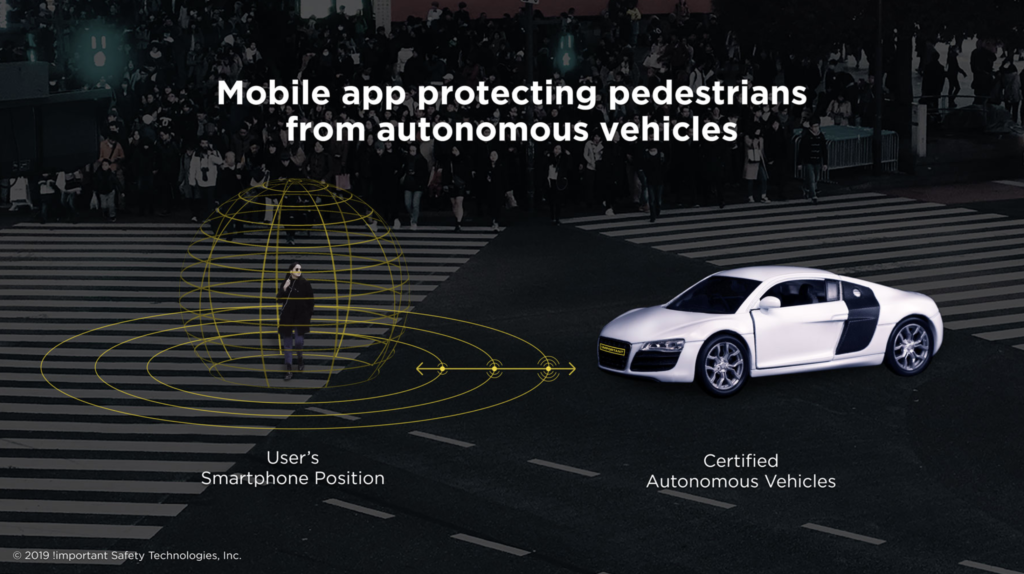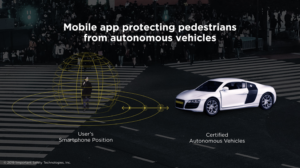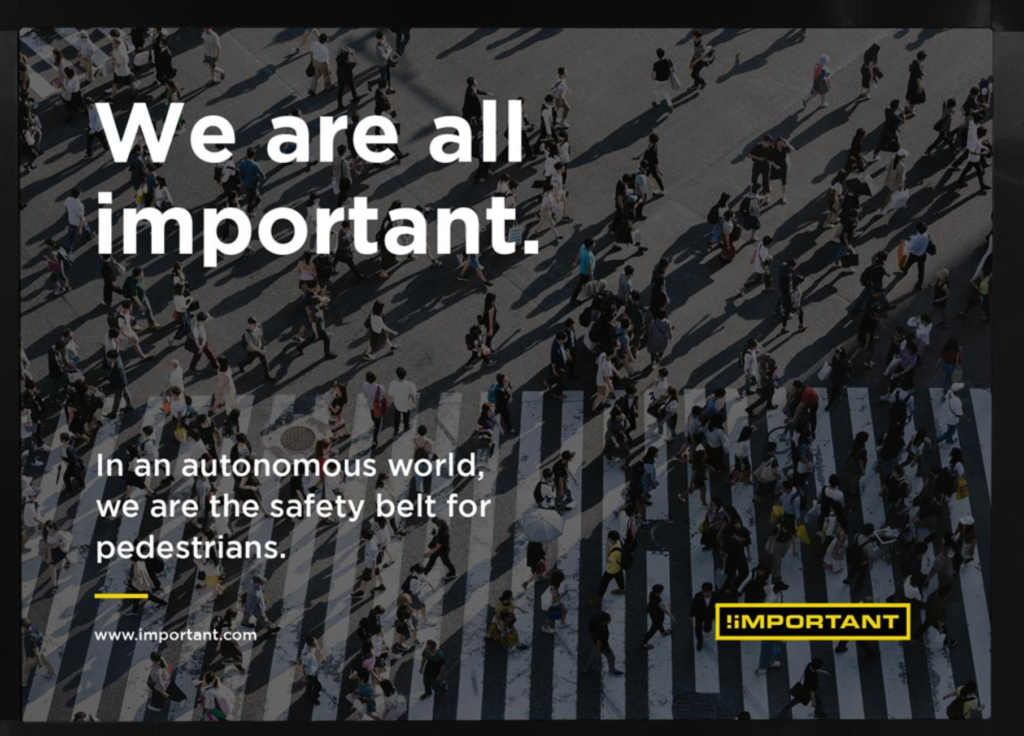With Uber, Waymo, Google, and Tesla leading the way towards a self-driving future, more autonomous vehicles are hitting the roads every single day. However, despite the fact that these vehicles are 100x less likely to crash than a human, nearly 75% of Americans still feel unsafe on the road with autonomous cars.
Myriad efforts are still being made to minimize the danger of these vehicles, yet one stark fact remains: people are unpredictable. Pedestrians occasionally bolt across the street, cyclists switch lanes without looking, and mad men on motorcyclists try to squeeze between cars on the freeway, despite the panic attacks they induce in nearly every driver subject to their bravery.
This unpredictability is a danger compounded by what Jeff Hecht poignantly calls “the proverbial ‘nut behind the wheel’,” also known as the the all-too-human driver “who is prone to speeding, drinking or texting-while-driving.” Hecht, a research fellow at the Optical Society Association, wrote a manifesto on Lidar technology which paints a long-term vision for Lidar as one of numerous sensory instruments needed for a vehicle to be truly autonomous. Despite his exhaustive look at the technology, even a vehicle equipped with lidar, sonar, ultrasound, short-range radar, long-range radar, and optical cameras will be prone to certain accidents.
“Artificial intelligence software in the car will need to pull all of the input from these sensors together to create a single robotic sensory system—and a whole greater than the sum of its parts. Those changes will take time. For now, automative lidar, like the whole field of autonomous vehicles, remains in flux.”
OSA Fellow Jeff Hecht
Unfortunately, waiting for this expensive and currently unfinished technology is a costly act of patience. Pedestrian fatalities account for 250,000 deaths annually and continue to rise every year. This is one of the most senseless and fixable losses of life that we’ve somehow come to terms with in modern society.
Is anyone concerned with innovating a solution beyond computer vision?
Among widespread Berkeley efforts to solve the issue of automotive safety (including the Deep-Drive research program) one company has emerged out of SkyDeck with a pretty clear-cut solution.

!Important technologies, aptly named for the goal it has in mind, hopes to save lives across the globe by creating what they call “the digital version of a seat belt.”
Here’s how it works
Their app uses location data and machine learning to calculate the precise distance between an individual and a self-driving car. If the car gets within a certain distance of the person but cannot be seen due to obstructed computer vision, !Important will send a warning to the driver and the pedestrian. If the distance is deemed to be potentially fatal, the app may even trigger the car to press on its brakes to prevent the collision altogether. This response is not binary (i.e. slam on the brakes or don’t) but rather follows a gradient system where brakes will be slowly applied in advance based on the distance of the pedestrian and speed of the vehicle.
This automated response would add an additional layer of security to account for the blind spots that currently exist in computer vision & object detection.
Beyond accident prevention, the app can also start to identify hot-spots of activity, locations where frequent “close calls” occur, and then inform the driver when they are in a riskier environment.
These developments allude to the ironic truth that technological imperfections can often be solved with technology. In the case of self-driving, no singular approach, such as computer vision, will be able to prevent 100% of the collisions. However, a combination of technologies may.
Given the devastating loss of life seen on the roads every year, !important’s solution shows promise in helping to minimize and eliminate the potential for unnecessary fatalities.
The company’s guiding principle is simple: “We are all important.” They have recently launched the beta version of their app, empowering pedestrians, cyclists, and city-goers alike to save themselves from something fatal.
To learn more, visit www.important.com.
With Uber, Waymo, Google, and Tesla leading the way towards a self-driving future, more autonomous vehicles are hitting the roads every single day. However, despite the fact that these vehicles are 100x less likely to crash than a human, nearly 75% of Americans still feel unsafe on the road with autonomous cars.
Myriad efforts are still being made to minimize the danger of these vehicles, yet one stark fact remains: people are unpredictable. Pedestrians occasionally bolt across the street, cyclists switch lanes without looking, and mad men on motorcyclists try to squeeze between cars on the freeway, despite the panic attacks they induce in nearly every driver subject to their bravery.
This unpredictability is a danger compounded by what Jeff Hecht poignantly calls “the proverbial ‘nut behind the wheel’,” also known as the the all-too-human driver “who is prone to speeding, drinking or texting-while-driving.” Hecht, a research fellow at the Optical Society Association, wrote a manifesto on Lidar technology which paints a long-term vision for Lidar as one of numerous sensory instruments needed for a vehicle to be truly autonomous. Despite his exhaustive look at the technology, even a vehicle equipped with lidar, sonar, ultrasound, short-range radar, long-range radar, and optical cameras will be prone to certain accidents.
“Artificial intelligence software in the car will need to pull all of the input from these sensors together to create a single robotic sensory system—and a whole greater than the sum of its parts. Those changes will take time. For now, automative lidar, like the whole field of autonomous vehicles, remains in flux.”
OSA Fellow Jeff Hecht
Unfortunately, waiting for this expensive and currently unfinished technology is a costly act of patience. Pedestrian fatalities account for 250,000 deaths annually and continue to rise every year. This is one of the most senseless and fixable losses of life that we’ve somehow come to terms with in modern society.
Is anyone concerned with innovating a solution beyond computer vision?
Among widespread Berkeley efforts to solve the issue of automotive safety (including the Deep-Drive research program) one company has emerged out of SkyDeck with a pretty clear-cut solution.

!Important technologies, aptly named for the goal it has in mind, hopes to save lives across the globe by creating what they call “the digital version of a seat belt.”
Here’s how it works
Their app uses location data and machine learning to calculate the precise distance between an individual and a self-driving car. If the car gets within a certain distance of the person but cannot be seen due to obstructed computer vision, !Important will send a warning to the driver and the pedestrian. If the distance is deemed to be potentially fatal, the app may even trigger the car to press on its brakes to prevent the collision altogether. This response is not binary (i.e. slam on the brakes or don’t) but rather follows a gradient system where brakes will be slowly applied in advance based on the distance of the pedestrian and speed of the vehicle.
This automated response would add an additional layer of security to account for the blind spots that currently exist in computer vision & object detection.
Beyond accident prevention, the app can also start to identify hot-spots of activity, locations where frequent “close calls” occur, and then inform the driver when they are in a riskier environment.
These developments allude to the ironic truth that technological imperfections can often be solved with technology. In the case of self-driving, no singular approach, such as computer vision, will be able to prevent 100% of the collisions. However, a combination of technologies may.
Given the devastating loss of life seen on the roads every year, !important’s solution shows promise in helping to minimize and eliminate the potential for unnecessary fatalities.
The company’s guiding principle is simple: “We are all important.” They have recently launched the beta version of their app, empowering pedestrians, cyclists, and city-goers alike to save themselves from something fatal.
To learn more, visit www.important.com.


